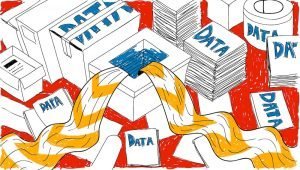As the advertising landscape is advancing, marketers are struggling to gain recognition, exposure, and engagement to increase sales. Technology advancements like AI are propelling every business’s sector forward, including marketing. Just like the error reduction increased in quality setting and efficiencies enhanced in manufacturing, AI in marketing is improving advertising, branding, and customer communication – almost every aspect of the marketing domain. However, many industry leaders think that the cost of AI isn’t worth their time. They believe AI tools are reserved for big brands having a higher budget. Therefore, let’s first discuss the top factors affecting the cost of AI.
Top factors affecting the cost of AI
The type of system you’re eyeing to create
AI mimics human intelligence by consuming information and providing appropriate action steps to be taken. Security cameras that identify persons in real-time video, voice assistants that comprehend questions spoken in natural language, and expert systems that recognize cancerous tumors in CT scans are all AI. However, the cost of an AI system varies based on its performance requirements and complexity.
The quality and amount of data you’ll feed the system

The level of accuracy you need
The level of accuracy and predictions depend on the requirements you impose on an AI system. For instance, a simple customer support chatbot can handle routine queries. For complex issues, a human specialist will be required. On the other hand, a pilotless delivery drone that transports blood bags to hospitals must manoeuvre around objects with utmost precision. Higher reliability and accuracy of AI systems directly affect the project’s lifespan and increase the development cost.
The level of intelligence you want

Learn more about the challenges of AI integration here. Now, let’s discuss the top benefits AI offers that most businesses can benefit from along with the system’s cost.
Top areas where AI gives a high ROI
Chatbots
Customers have found chatbots to be incredibly helpful in navigating their way around a business’s website. When handling client interactions on a website, AI-powered chatbots take the place of humans by providing succinct answers to questions and personalizing the conversation to each individual customer. You can connect a sales representative to a chatbot after a conversation to continue persuasion and marketing strategies to boost engagement rates.
The cost of AI chatbots depends on whether you create a chatbot in-house, or pay for a chatbot software subscription. The standard software subscription plan will cost around $100/month. If you build a system in-house, it will cost around $5-10,000. If you hire an agency for development and maintenance, the cost will be around $500 to $5000/month.
Personalization and predictive marketing analytics

One way for businesses to achieve personalization is to use AI predictive marketing analytics. By analyzing data from past events, AI can accurately predict how performance will appear in the future. Moreover, analyzing what audiences like most will be useful to recommend relevant products/services to them.
For instance, Amazon is the leader in this tactic. Amazon’s AI system is aware of your previous purchases when you browse their website. This allows it to make relevant product recommendations. Additionally, it’s aware of what other similar users are interested in, so it provides recommendations based on their activity. This produces extremely personalized recommendations that significantly increase conversion rates.
The cost of AI personalized recommendation system will be around $15,000 – $20,000. Approximately $5000 for prototype development, $10,000 for developing a minimum viable product, and $5000 for deployment and final release.
Automatic lead distribution

For instance, you wouldn’t want the newest sales representative with minimum experience handling leads from a significant opportunity. They may not be the most efficient at articulating the value of your solution because they don’t have much expertise working with larger potential clients. Instead, you should provide that lead to a sales representative who has greater expertise, has been selling your product for some time, and has a history of successfully closing substantial deals.
Automated lead distribution not only makes the sales funnel more effective but also helps improve the lead response time. Prospects are more likely to lose interest and turn to an alternative solution if they’ve to wait longer to talk with a sales representative. Quick lead response times lead to more leads being closed and more sales being generated. The cost of AI-powered automatic lead distribution systems lies between $40/month to $700/month.
Customer behaviour analysis
Whether you’re entering a new market or thinking if it makes sense to sunset or enhance an existing product, you’ve to use customer behaviour analysis insights to make an informed decision. With AI-backed customer behaviour analysis, marketers can identify new sales opportunities. For instance, after reviewing the email newsletter’s open and click rate, a law firm may identify their clients have shown interest in trademarks. They can use this data to start a marketing campaign that highlights their newly created trademark package or trademark services.
Furthermore, business risks are another insight you can get from customer behaviour analysis. Suppose you have a brick-and-mortar business. You may find during customer behaviour analysis that your audience is doing more shopping online. That could be a sign that your company is at risk. If you recognize this trend early enough, you can make some efficient key business decisions. You can create an online presence, move your business online, or reevaluate how you run the store before a potential competitor takes your market share.
The cost of AI-supported customer behaviour analysis system starts from $3200/month.
Search engine optimization
As AI has become ingrained in our lives – from food to fitness, from shopping to travel – it’s also becoming pivotal in marketing and SEO. Integrating AI with SEO strategies helps marketers unearth trending topics and keywords, and gain better insights into customer’s behaviour and buying patterns, and target markets.
There’re several ways to apply AI SEO. Text search for AI requires both the system’s capacity to automatically adapt to what the user is learning and learning from the user to deliver the next best practice.
Voice search is different and is more conversation-focused and mainly takes the form of a question. Your SEO strategy should properly address this. For voice searches to work, natural language understanding is necessary. Everybody speaks and types differently. As a result, SEO experts are forced to rely on long-tail keywords based on voice-search data. With more people using voice search, this is a very effective approach that AI can enhance searches.
Furthermore, AI can help in content creation and optimization. You can find the keywords based on the target audience. AI will also help you find link-building opportunities. Besides that, you can use keyword insights to outrank the competition by creating optimized content on trending topics.
That’s not all; by comprehending user intent, AI can also direct users to your website. Besides, visual content can draw in a significant crowd. User engagement will be improved quickly with multiple sorts of graphs & charts, infographics, and images. Some of the best AI SEO tools cost from $50/month.
Conclusion
AI brings significant value to businesses of all sizes. By integrating AI solutions, you can enhance efficiency, automate business processes, and create robust marketing strategies to increase ROI. However, the cost of AI solutions can be an impeding factor. Therefore, you must understand your business objectives and requirements. Some businesses need premium AI tools and some require custom AI solutions. Ultimately, the success of AI integration in business requires some initial investment and the right approaches. If you’re about to invest in AI, we recommend you to start low and expand capabilities as your business grows. Moreover, keeping in mind your company’s resource constraints, cultural context, and technical maturity will ensure that you achieve sustained success and a competitive edge all while living your company’s purpose and values.

